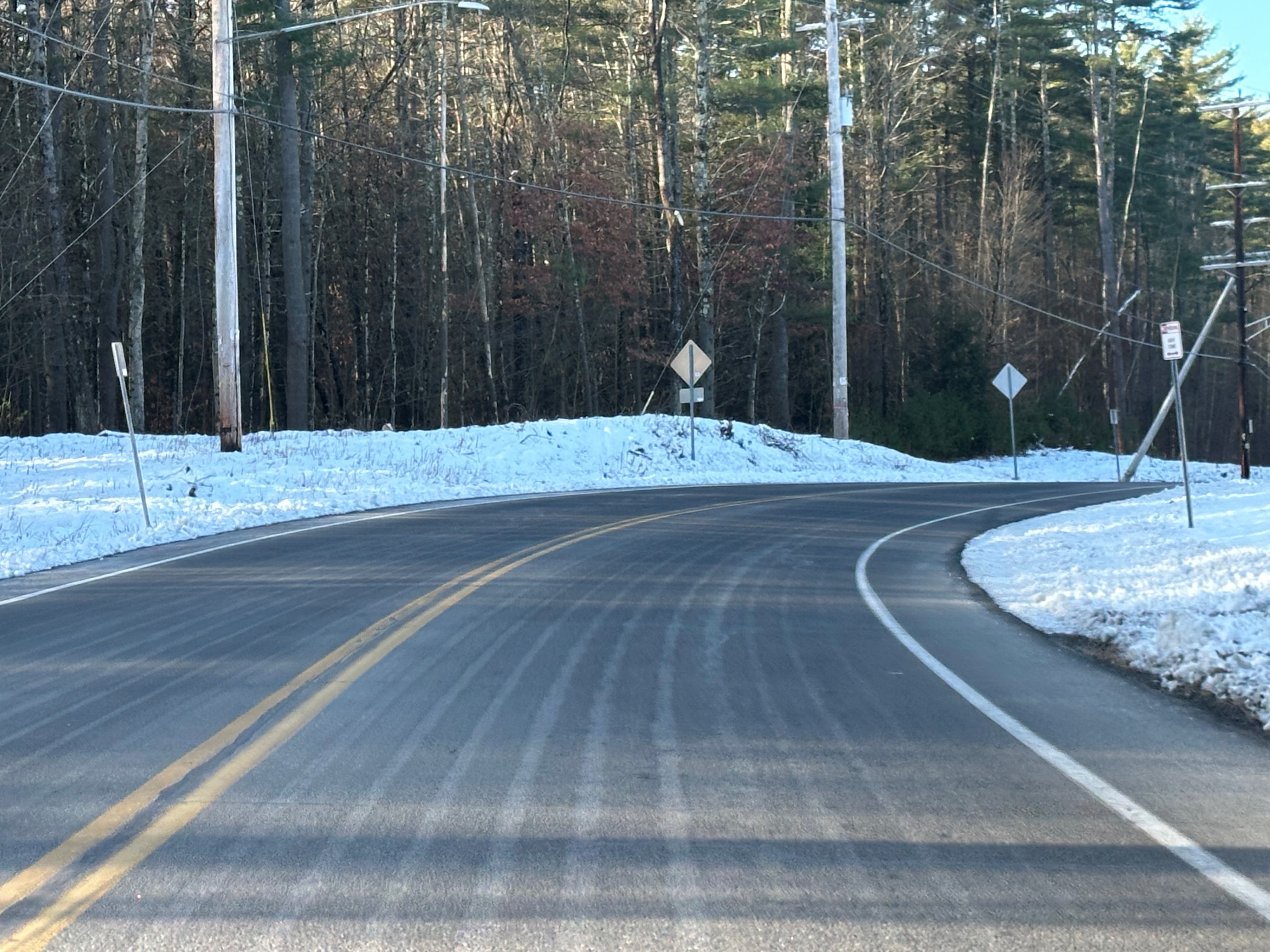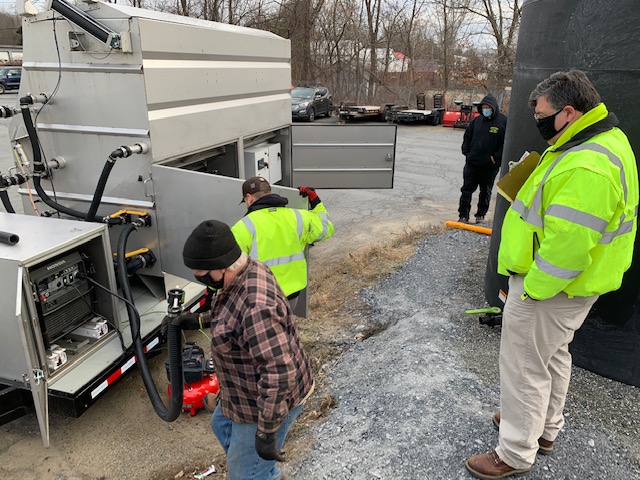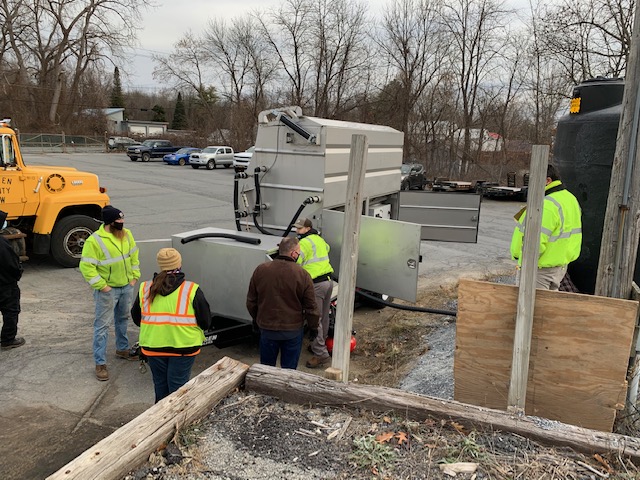
Collaborative ‘brine’ effort improves safety, cuts costs
Warren County Department of Public Works has begun making salt brine to better treat our roads, and our environment will be better because of it.
The liquid, a mix of salt and water, has been found to be a cheaper and more environmentally friendly product than rock salt to prevent adhesion of snow and ice to road surfaces in the winter.
Warren County DPW has purchased brine in the past from a supplier, but that arrangement was halted last winter when a regional manufacturer stopped making it.
For this winter, under a plan sanctioned by the Warren County Board of Supervisors, DPW staff opted to purchase equipment to make brine on their own, as well as provide it to communities around Warren County that want to use it.
Two Henderson brine-making units have put in service in recent weeks, including a stationary machine being used at the DPW yard in Warrensburg and a mobile unit that will be used to fill other storage tanks that the county owns, according to Kevin Hajos, Warren County DPW Superintendent. The stationary unit was purchased by The Fund for Lake George and graciously donated to the county.
The Henderson BrineXtreme Infinity mobile brine-maker is mounted on a trailer, and will be loaned to other municipalities in Warren County as well as neighboring counties to make brine for their roads.
(The Lake George basin towns of Ticonderoga, Dresden, Putnam, Bolton and Queensbury and Washington County contributed funds toward the equipment. The towns of Lake George and Hague have their own brine-making systems.)
Hajos explained that the multi-community effort will quickly pay dividends this winter.
“Being able to assist others in making brine will not only help the environment by protecting our waterways and wells for generations to come, but allow each of the participating municipalities to reduce the amount of funding needed in their budgets by reducing the amount of salt used while still maintaining public safety,” Hajos said. “What is better than saving money and protecting the environment?”
On Monday, December 7, 2020 county DPW staff and colleagues from around the region gathered at the “South End” DPW facility on River Street in Queensbury, for a demonstration of the mobile machine’s use.
Tod Beadnell, Warren County Deputy Highway Superintendent, explained the ins and outs of the equipment, while DPW staff fired it up it to make a batch of brine for use in the south end of the county this winter.
The brine will be applied to pavement before storms, to keep snow and ice from sticking when they fall. Data show that using brine reduces rock salt use by up to 50 percent, and results in a need for less sand application as well, reducing pollution.
New York State has been using brine on state highways and interstates such as the Northway for several years.



